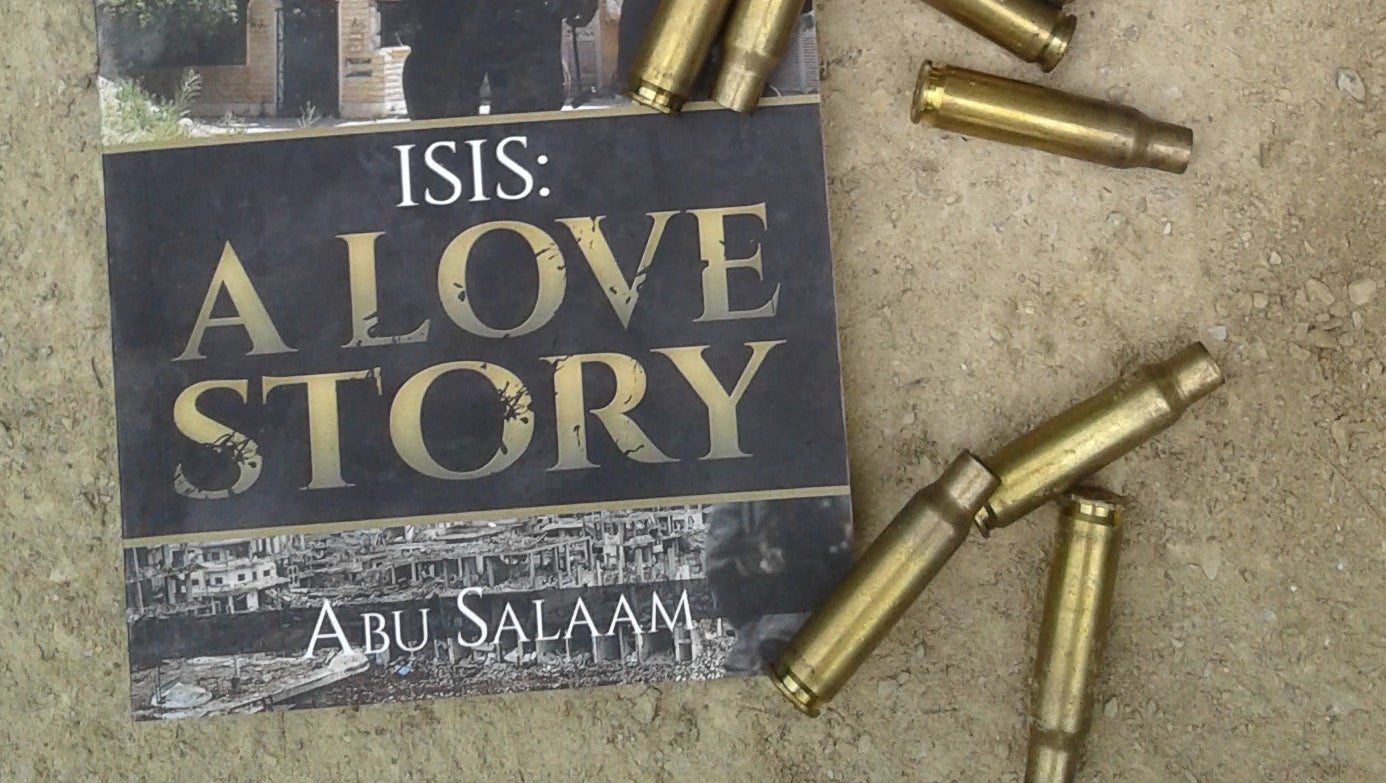A writer has self-published a homoerotic romance about two jihadist fighters to humanize ISIL
Now available on an Amazon near you: The smell of gunfire, burning diesel, and death provide the backdrop to a new action-adventure erotic romance between two men within the ranks of ISIL (a.k.a. ISIS).


Now available on an Amazon near you: The smell of gunfire, burning diesel, and death provide the backdrop to a new action-adventure erotic romance between two men within the ranks of ISIL (a.k.a. ISIS).
Out this July from pseudonymous Abu Salaam, ISIS: A Love Story follows two mujahideen traveling across Syria. Ali and Majnun are best friends, secret lovers, and soldiers for ISIL, killing Bashar al-Assad loyalists in Syria’s civil war.
Salaam hoped to provide a ”sensible critique and subtle satire as a cohesive narrative to counter the image that ISIS attempts to curate for itself,” according to a press release.
One representative passage in the novel reads:
Ali’s joy sprang forth as a kiss onto Majnun’s lips. He lingered for a moment, enjoying the life in his companion. Then, rolling his body off, Ali rocked a full magazine into his rifle. Under pressure, he rose- spraying fire at his foe. Adrenaline and amphetamine steadied his muscles.
Salaam says he believes that the story will humanize the soldiers of ISIL. “As much as some people may hate to admit, ISIS isn’t composed of monsters. They’re human just like you, or I,” he says in an email. “In all likelihood, members of ISIS didn’t grow up wanting to be part of a homicidal Jihadi death cult. They were kids with hopes and dreams, and they went astray.”
He says he got the idea to write the story after the terrorist attacks in Paris in 2015. “It all kind of came to me at once, and I was quite broke,” he says. “I didn’t have cable or a home internet connection, and I’d already read all the books I owned, so I just started writing.”
Salaam has never written erotica or self-published a book before, and says he drew inspiration from 50 Shades of Grey. The novel paints ISIL outside the two characters as unrelentingly violent and unforgiving of homosexuality, punishing gay men with death. At the end of the story, Ali and Majnun—like Layla and Majnun, Arabic literature’s Romeo and Juliet, on whom the two are surely based—free themselves of their impossible love by agreeing to meet in heaven.